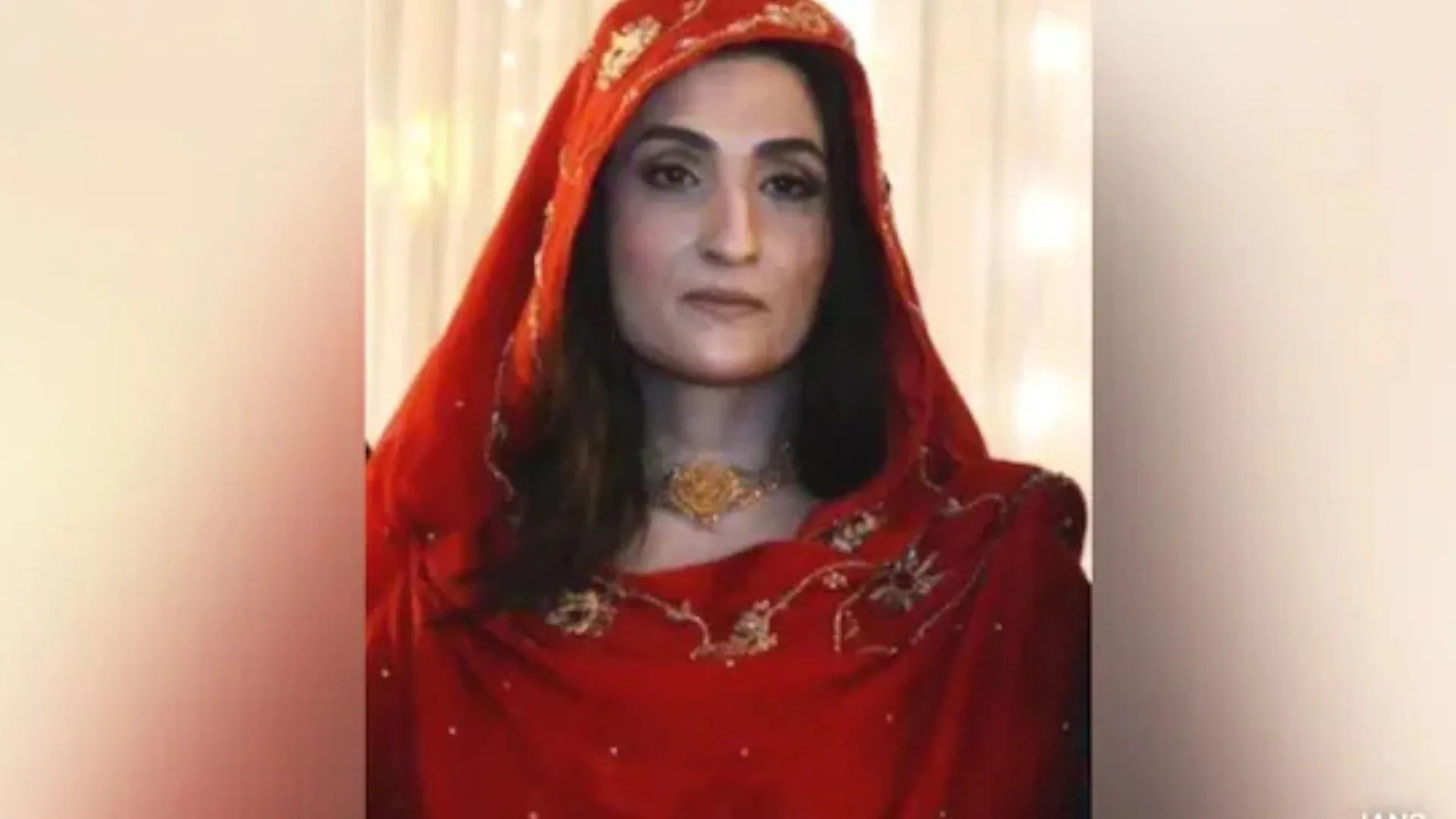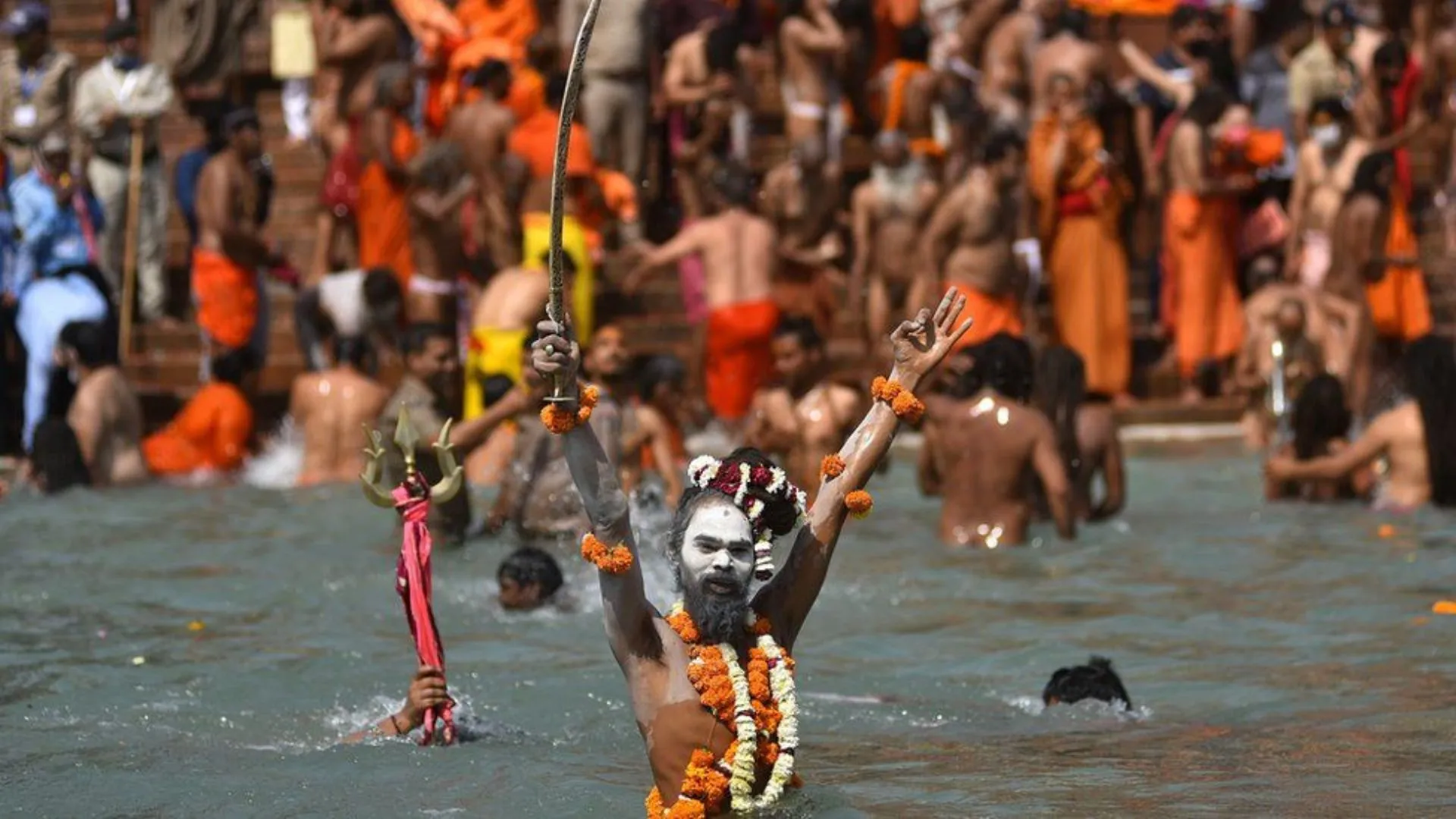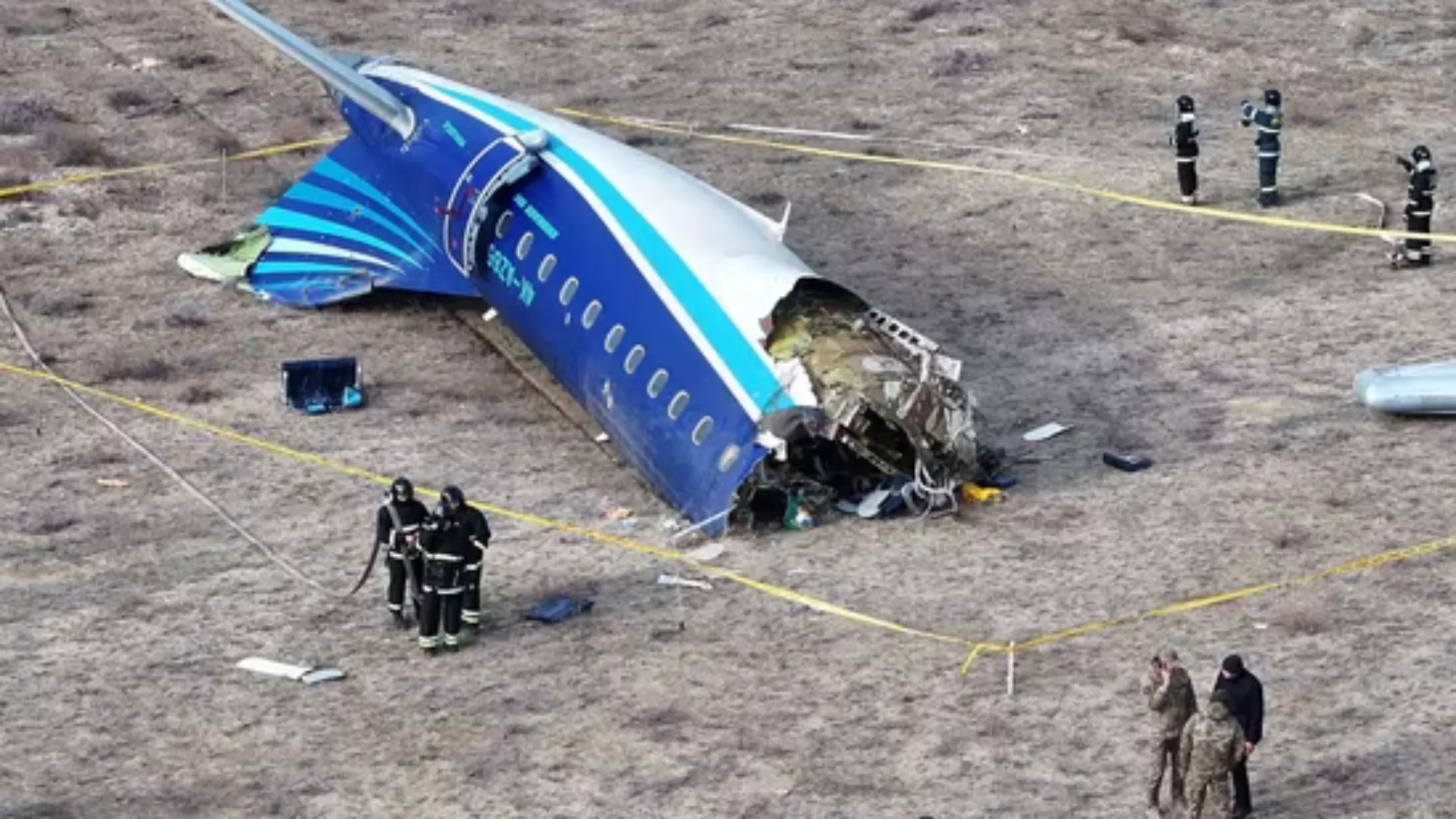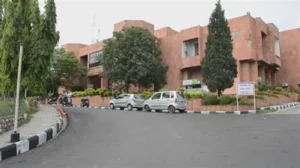While displaying absolute zero tolerance for those indulging in “forum shopping”, the Jammu and Kashmir and Ladakh High Court in a most pragmatic, pertinent and progressive judgment titled Dr Khair-Un-Nisa and others Shalini Sharma and others v/s UT of Jammu and Kashmir and others in WP(C) 1742/2022 c/w WP(C ) No. 1748/2022 and cited in 2023 LiveLaw (JKL) 69 dismissed the petition and also imposed an exemplary cost of Rs one lakh on the petitioners for the malevolent conduct which the petitioners exhibited. The Court dismissed the petition to quash and set aside an advertisement notification for selections to constitute Juvenile Justice Boards and Child Welfare Act, 2015. The Bench comprising Hon’ble Mr Justice Sanjeev Kumar and Hon’ble Mr Justice Puneet Gupta while deciding a plea noted that the petitioners, ninety six (96) in number, working either as Chairpersons/Members of the Child Welfare Committees (CWCs) or Members of Juvenile Justice Boards (JJBs) had been appointed under different provisions of Jammu and Kashmir Juvenile Justice (Care and Protection of Children) Act, 2013 for a period of 3 years.”
At the very outset, this brief, brilliant, bold and balanced judgment authored by Hon’ble Mr Justice Sanjeev Kumar for a Division Bench of the Jammu and Kashmir and Ladakh High Court comprising of himself and Hon’ble Mr Justice Puneet Gupta sets the ball in motion by first and foremost putting forth in para 1 that, “The petitioners, ninety six (96) in number, are either Chairpersons/Members of the Child Welfare Committees [‘CWCs’] or Members of Juvenile Justice Boards [‘JJBs’] appointed under the different provisions of Jammu and Kashmir Juvenile Justice (Care and Protection of Children) Act, 2013 [‘the Act of 2013’] and the Rules framed thereunder. The Chairpersons and Members of CWCs and JJBs were appointed initially for a period of three years. The term of JJBs Members expired on 12.01.2021 and so far as Chairpersons/Members of CWCs are concerned, their term came to be an end on 06.02.2021. However, in terms of Government Order No. 13-SW of 2021 dated 27.01.2021, the term of existing members of JJBs and CWCs was extended for a further period of one year or till fresh selection was made as per the prescribed procedure whichever was earlier. The process of selection for appointment of the Members of JJBs and the Chairpersons/Members of CWCs was initiated vide Advertisement Notification No.01 SC (MV) dated 01.08.2022 and Notification No. 02 SC (MV) of 2022 dated 01.08.2022 respectively. All the petitioners herein are aggrieved of and have called in question both the Advertisement Notifications (supra) on multiple grounds. The petitioners have prayed for, inter alia, the following reliefs:
(a)A writ of certiorari to quash and set aside the Advertisement Notification No.01 SC (MV) dated 01.08.2022 and Notification No. 02 SC (MV) of 2022 dated 01.08.2022; and,
(b) A writ of mandamus directing the respondents to allow the petitioners to discharge their duties as Chairpersons/Members of CWCs and the Members of JJBs in terms of Jammu and Kashmir Juvenile Justice (Care and Protection of Children)Rules, 2014.”
Briefly stated, the Bench states in para 2 that, “From a reading of the entire petition, it becomes crystal clear that the cause of action to approach this Court accrued to the petitioners primarily on expiry of their initially term of appointment and, more particularly, when the respondents vide Government order dated 27.01.2021 (supra), while extending the term of appointment of the petitioners by one year, also made it clear that the process of selection to constitute JJBs and CWCs under the Juvenile Justice (Care and Welfare) Act, 2015 [‘the Act of 2015’] and Juvenile Justice (Care and Welfare) Model Rules, 2016 [‘the Model Rules of 2016’] shall be undertaken. The petitioners knew fully well that, after expiry of extension of one year or with the fresh selection to the JJBs and CWCs made under the Act of 2015, they were to give way, unless they were selected in the fresh selection process. The petitioners, however, approached this Court by way of instant petition only when the process of selection was set in motion by the respondents by issuing impugned Notifications aforesaid. Not only the petitioners threw challenge to the Advertisement Notifications, but they also sought extension of their tenure by three years more by placing strong reliance on Rule 4 of the Jammu and Kashmir Juvenile Justice (Care and Protection of Children ) Rules, 2014 [‘the Rules of 2014’].”
To put things in perspective, the Division Bench envisages in para 7 that, “By reading both the aforesaid writ petitions in juxtaposition, it can be clearly seen that the averments made in both the petitions are entirely identical. Even by careful reading of contents of subsequent writ petition filed in Jammu wing of this Court, it is difficult to discern the provocation to file the said writ petition. The only change that we noticed in the subsequent writ petition is that the petitioners in the said writ petition are seeking extension of their term upon their performance appraisal as is required under Sub-rule 2 of Rule 4 and Sub-rule 3 of Rule 24 of Rules of 2014. The reliance upon the aforesaid Rules is also placed in the earlier writ petition.”
Do note, the Bench notes in para 8 that, “It is pertinent to mention here that in terms of order dated 30.11.2022 passed in PIL 9/2013, both the petitions aforesaid were clubbed with the said PIL.”
Quite pertinently, the Bench observes in para 9 that, “After hearing learned counsel for the parties and having read both the writ petitions between the lines, we clearly find that in the first writ petition filed in Srinagar the petitioners had missed to pray for and persuade the learned Single Judge to protect their continuation in service. The focus of the petitioners in the first petition filed in Srinagar wing of this Court was only to somehow persuade the Court to stop the process of selection undertaken by the respondents by issuing the impugned Notifications. The petitioners were well aware that their first term of appointment had since expired and even the extension of one year granted too had expired when the writ petition was filed. It is in this background and keeping the fact situation in mind, the petitioners specifically prayed for a direction to the respondents to allow them to discharge their duties as Chairpersons/Members of CWCs and Members of JJBS in terms of the Rules of 2014 framed under the Act of 2013. We are, therefore, at a loss to understand as to what prompted the petitioners to file another writ petition, that too, in the Jammu wing of this Court when the first petition on the subject matter was pending adjudication in Srinagar wing of this Court. Obviously, filing of second writ petition was motivated by the consideration that, though the petitioners had succeeded in persuading the Court in Srinagar wing to stay the selection process initiated by the respondents in terms of the impugned Advertisement Notifications, but had either missed to pray for or failed to persuade the Court to pass an order of status quo, so that their service status could also have been protected. Perhaps the petitioners could have filed an application in the pending case and made an effort to persuade the learned Single Judge to consider granting an another interim order of stay to protect their service status in the first petition pending in Srinagar wing of this Court. But as the things will speak for themselves, the petitioners rushed to the Jammu wing to file the second petition though their earlier petitioner was pending in Srinagar wing. It is not in dispute that the Srinagar Wing of this Court was fully functional and Bench with relevant roster was available in Srinagar but had shifted to Jammu in the meanwhile. Obviously, the Jammu wing of this Court was moved to have the second petition listed before the same Bench which had entertained the first petition and passed the interim directions staying the process of selection undertaken by the respondents in terms of the impugned Notifications.”
Most significantly, what constitutes the cornerstone of this notable judgment is then encapsulated in para 10 wherein it is mandated that, “It is nothing but a clear case of forum shopping/Bench Hunting, pure and simple and blatant abuse of process of law. In the first place, the second petition on the same cause of action and the same subject matter was not maintainable. The timing of filing of the second petition is also relevant. The first petition was filed on 10.08.2022 in Srinagar wing of this Court and the interim order was passed on 12.08.2022. The second petition was filed in Jammu wing on 22.08.2022 i.e. after 10 days of the grant of interim relief in the earlier petition. The petitioners have not been able to point out any new development that had taken place between 10.08.2022/ 12.08.2022 to 22.08.2022. The petitioners, by their sheer conduct of indulging in forum shopping, have lost their right to invoke the equitable jurisdiction of this Court. The petitioners have tried to hoodwink this Court by filing second petition on the same cause of action, that too, in the wing other than the one in which the first petition on the same subject matter was pending. An attempt was made to get an additional interim order in different form which the petitioners had failed to obtain in the first petition. The reason for rushing to the Jammu wing to file the second petition was nothing short of forum shopping and, therefore, cannot be countenanced by this Court on any count.”
Equally significant is what is then propounded in para 11 that, “The forum shopping is essentially a practice of choosing the Court in which to bring an action from among those Courts that could properly exercise jurisdiction based on a determination of which Court is likely to provide a most favourable outcome. Similarly, ‘Bench hunting’ refers to petitioners managing to get their cases heard by a particular judge or Court to ensure a favourable order. Recently, Apex Court has come heavily on such unscrupulous elements who are always on a hunt to find a Court or forum of their choice [Refer Kamini Jaiswal v. Union of India; (2018) 1 SCC 156]. Such conduct of party is not permitted under law. The principle is based on the maxim that one who seeks equity must do equity. The extraordinary writ jurisdiction conferred upon the Constitutional Court is predominantly an equitable discretionary jurisdiction and the Constitutional Court can refuse to entertain a petition and grant relief prayed for only on the ground that the petitioner has not approached the Court with both the hands clean, notwithstanding the merits of such petition.”
Needless to state, the Division Bench then states in para 12 that, “Unscrupulous litigants cannot be allowed to even think of indulging in forum shopping to get favourable decisions. It is depreciable conduct in the field of law.”
Most forthrightly, the Division Bench then minces just no words to hold in para 16 that, “In the instant case, the petitioners even tried to hoodwink the Court and justify the filing of subsequent petition in another wing by rearranging the sequence of names of petitioners just to give an impression as if they, in the subsequent petition, were different from the one who had filed the earlier petition in Srinagar Wing of this Court. Viewed from any angle, the conduct exhibited by the petitioners is highly deprecable and cannot be approved. Such litigants are not entitled to invoke the extraordinary writ jurisdiction. Both the writ petitions are, therefore, liable to be dismissed on this ground alone without even going to the merits of the controversy.”
While displaying magnanimity, the Division Bench observes in para 17 that, “There is, however, another significant aspect which this Court cannot lose sight of. The petitioners before this Court are hundred (100) and as per the record produced by the respondents, eighty five (85) of them have already been selected by the selection committee on the basis of their qualification, experience and personal interaction/interview. It is true that sixty two (62) petitioners had already responded to the Advertisement Notification before they filed WP(C) No. 1742/2022 and rest of them submitted their applications pursuant to the directions passed by this Court on 14.11.2022 in the connected public interest litigation. Be that as it may, all the 100 petitioners have participated in the selection process, out of which, 85 have already made it to the selection. Although looking to the conduct exhibited by the petitioners in this litigation, we could have directed their ouster from their office, notwithstanding their selection made by the selection committee pursuant to the impugned Notifications, yet, we have decided to take a lenient view in the matter with a hope that the petitioners would take a lesson from here and would never think of indulging in forum shopping or misleading the Court to derive any permanent or temporary unfair advantage.”
Finally, the Division Bench concludes by holding in para 18 that, “Without commenting much, we dismiss both the petitions, but not without imposing exemplary costs of Rs.1.00 lac, to be deposited by the petitioners in the Registry of this Court within four weeks from today. The dismissal of these petitions shall pave way for the selection committee to finalize the selection. We hope and trust that the Competent Authority shall act in the matter without any further delay and constitute the CWCs and JJBs in accordance with the 2015 Act and the Rules framed thereunder.”
In conclusion, we thus see that the Jammu and Kashmir and Ladakh High Court has clearly demonstrated that those who indulge in “forum shopping” pertaining to re-appointments would have to pay through their nose as we see in this leading case also. One fervently hopes that this is emulated in similar such cases by all the Courts in India! No denying it!








